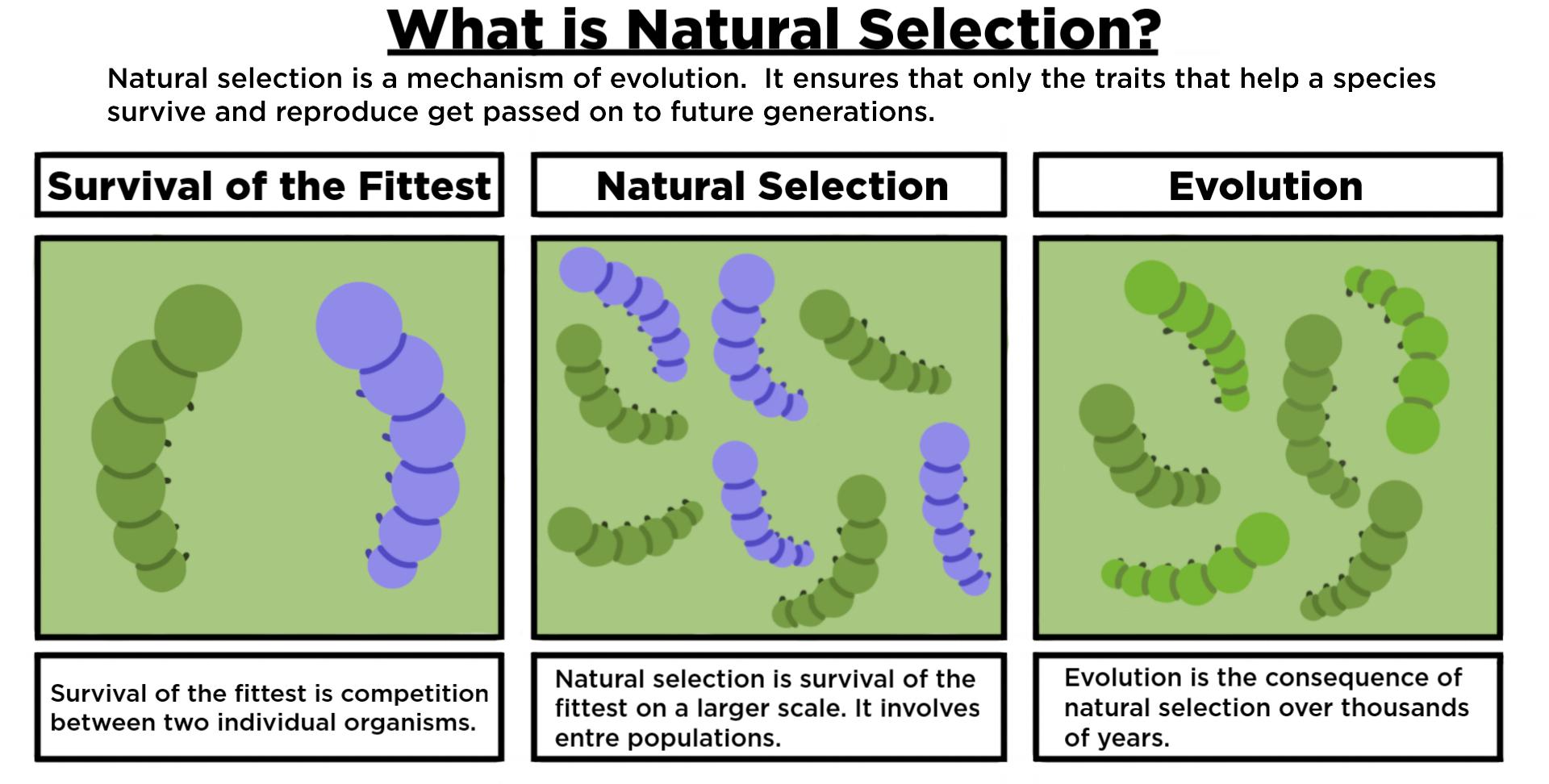explain how natural selection can lead to evolution.
3 Does artificial selection provide evidence for evolution by natural selection explain. Natural selection is a mechanism of evolution.

Sol Ls 11 Natural Selection Standards
Natural selection results in the better adapted individuals to pass on their characteristics to more offspring as the lesser adapted ones are more likely to die before they reproduce.

. Explain how natural selection can lead to evolution. 12 How does natural selection lead to evolution. It is one of the cycles that drives development and assists with clarifying the variety of life on Earth. The gene pool is affected by selective pressures which are environmental challenges that cause one genetically determined trait to be favoured over another.
Explain how natural selection can lead to new species forming speciation Within a gene pool of a population there is genetic variation due to mutation. But there is much work still to be done. Natural selection results in the better adapted individuals to pass on their characteristics to more offspring as the lesser adapted ones are more likely to die before they reproduce. Natural selection is a mechanism of evolution.
The gene pool is all the genes contained within a population. SHOW ANSWER QUICK ANSWERNatural selection leads to evolution because the traits of those who are able to reproduce influence future generations genetics and gradually lead to these passed on traits becoming the normal state of being thus causing the species in question to evolve. Natural selection can lead to evolution because natural selection is a population that has a higher chance of producing successful offspring. Those individual organisms who happen to be best suited to an environment survive and reproduce most successfully producing many similarly well-adapted descendants.
Natural selection leads to evolutionary change when individuals with certain characteristics have a greater survival or reproductive rate than other individuals in a population and pass on these inheritable genetic characteristics to their offspring. If the offspring with a favorable trait is being produced that trait is going to carry on over time resulting in evolution. 11 Who explained evolution by means of artificial selection. - When the environment changes organisms best suited for the new environment survive and reproduce.
This leads to phenotypic variation. This means that the advantageous alleles of. In its essence it is a simple statement about rates of reproduction and mortality. Natural selection leads to evolution because the traits of those who are able to reproduce influence future generations genetics and gradually lead to these passed on traits becoming the normal state of being thus causing the species in question to evolve.
In most cases the process simply allows a species to better adapt to its environment by changing the genetic make up from one generation to. Up to 24 cash back But natural selection doesnt always lead to the development of a new species. Organisms that are more adapted to their environment are more likely to survive and pass on the genes that aided their success. Organisms that are more adapted to their environment are more likely to survive and pass on the genes that aided their success.
It is one of the processes that drives evolution and helps to explain the diversity of life on Earth. Over time this result accumulates and a new generation is created with the favourable characteristics that makes this species better adapted to its environment. Natural selection can not create variations it can only eliminate the existing variations that are not as well adapted to the changing environment as others. This process causes species to change and diverge over time.
View full document. Evolution describes the divergence of species by natural selection. Explain how natural selection can lead to evolution. It is best to think of this at the level of the gene pool.
Natural selection can lead to speciation where one species gives rise to a new and distinctly different species. Genetic variation can be caused by the mutation which can create entirely new alleles in a population random mating random fertilization and recombination between homologous. Natural selection can result in organisms that are more likely to survive and reproduce and may eventually lead to speciation Explain what phylogeny and phylogenetic trees are describing the different components of phylogenetic trees how they are constructed and the types of data used. - The favorable adaptation is passed on to the next generation.
Darwin chose the name natural selection to contrast with artificial selection or selective breeding that is controlled by humans. - Over time more and more organisms will have the favorable adaptation and the population will evolve. Some individuals will be better adapted to the environment than others and will therefore be more likely to breed and pass on their alleles to the next generation. Natural selection is a process where organisms that are better adapted to an environment will survive and reproduce.
Natural selection preserves variations that are. How does natural selection lead to evolution. As can be inferred by the wide variety of subjects considered it is now impossible to deny the importance of natural selection in shaping a considerable portion of the human genome. 13 What evidence did Darwin have to support the theory of evolution.
Genetic variation is an important force in evolution as it allows natural selection to increase or decrease the frequency of alleles already in the population. Natural selection is a mechanism by which populations adapt and evolve. How does natural selection lead to evolution. Natural selection acts like a racket.

What Is Natural Selection Definition Importance Expii

19 3a Natural Selection And Adaptive Evolution Biology Libretexts

Evolution And Natural Selection Review Article Khan Academy

Natural Selection Definition And Examples Biology Dictionary

Comments
Post a Comment